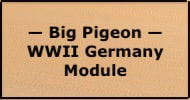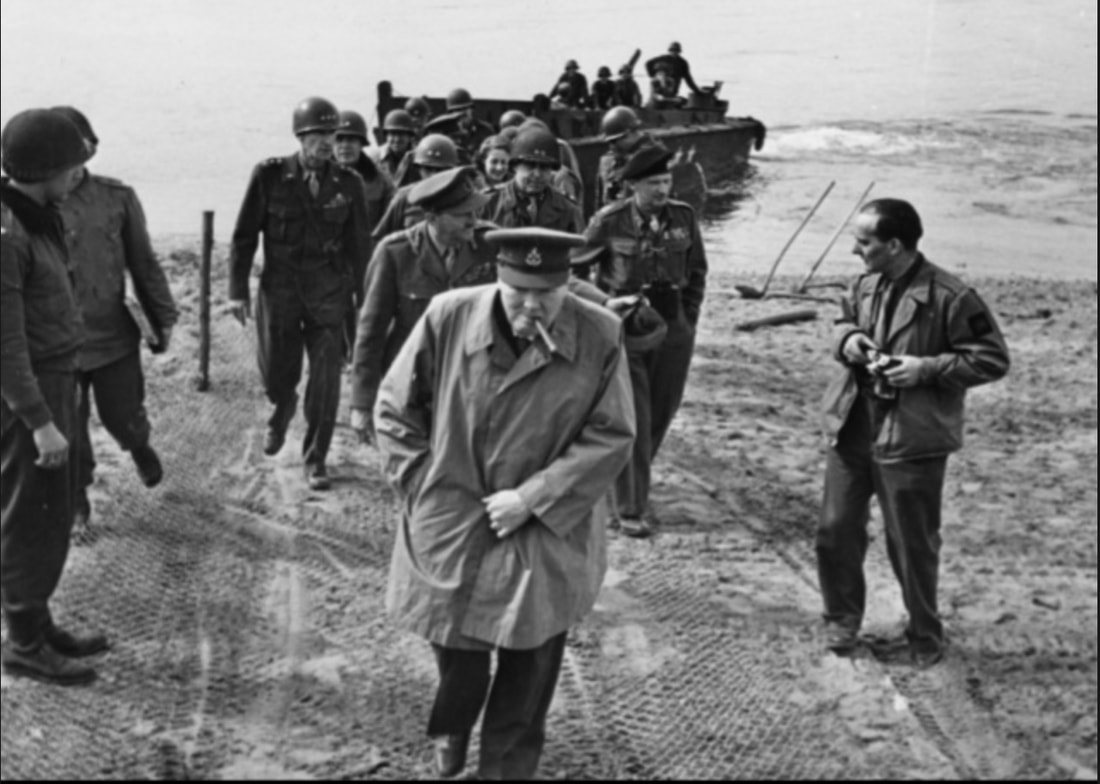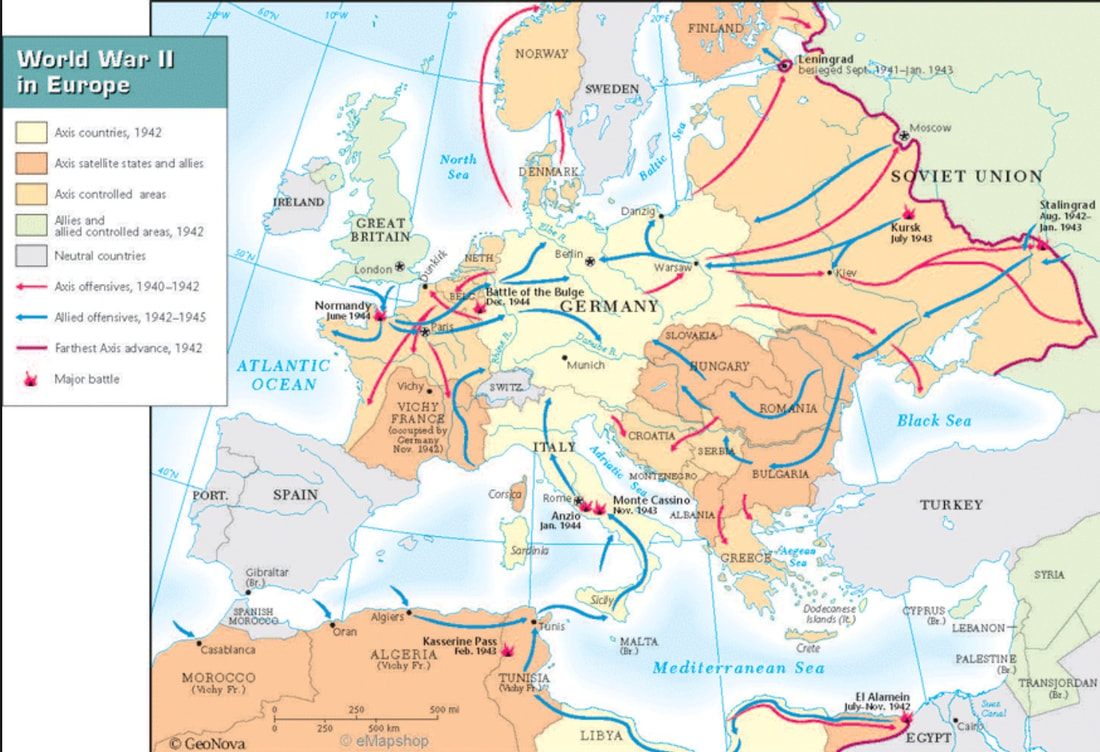bigpigeon.us webpage WWII Germany > WWII Germany Overview, © 2023 by Robert A. Christiansen, updated by RAC 27 May 2023.
The War with Germany, the European portion of World War II, was fought from 1939 to 1945 between the Allied nations and the the Axis nations headed by Germany.
The War with Germany, the European portion of World War II, was fought from 1939 to 1945 between the Allied nations and the the Axis nations headed by Germany.
- The Allied Big Three were Great Britain, the Soviet Union and the United States.
- The major Axis nations were the Germany, Japan, and Italy.
- The Soviet Union entered the war in June 1941 after being invaded by Germany
- The United States entered the war in December 1941 after Japanese attacks on the United States and Great Britain.
- United States ground operations in the war with Germany occurred in two areas, the Mediterranean Theater and the European Theater.
World War II Germany - the major players
Axis powers:
- Germany was led by a talented fanatic, Adolph Hitler, whose Fascist ideology and NAZI political party dominated German life and who himself dominated the Axis alliance.
- Italy, Germany's major European ally, switched sides in 1943 after Italy's long-term dictator, Benito Mussolini, was forced from power.
- Rumania, Hungary, Bulgaria, Slovakia, and Croatia supported most Axis goals and sometimes supplied troops. Finland supported Germany against the Soviet Union but was not part of the Axis. All these countries abandoned their alliances with Germany before World War II ended.
- Great Britain and the British Commonwealth and Empire, led by the eloquent Winston Churchill.
- The Soviet Union (from June 1941), also referred to as the U.S.S.R. and Russia, was led by Josef Stalin, who in some ways was even more brutal than Hitler. Germany and the Soviet Union formed an ad hoc alliance in August 1939, before WWII began with the invasion of Poland. Germany then invaded the Soviet Union in June 1941, whereupon The Soviet Union joined the Western Allies. The Soviet Union suffered the most casualties, both military and civilian.
- The United States, whose active participation in the War with Germany began with a declaration of war by Germany in December 1941 after the Japanese attack on US military forces at Pearl Harbor.
- Various groups in exile, especially Free French and Polish.
World War II Germany - the Major Ground Operations
United States ground combat in the War with Germany was limited to the last three bulleted items in the above list.
- The US Army organized ground combat into a series of campaigns in the Mediterranean Theater, and a series of campaigns in the European Theater. In retrospect, the Army's definition of campaigns is defective in some ways, and I have sometimes not followed it in my organization of Big Pigeon's WWII Germany module.
- War with Germany Campaign Concordance shows the differences between the official US Army's campaign definitions and my organization. It is somewhat out of date.
World War II Germany - The Battle of the Atlantic
In Winston Churchill's mind, front number one in the War with Germany was the Atlantic Ocean, where the Battle of the Atlantic raged from 1939 to 1945, pitting German submarines against the Allied shipping essential to the survival of Great Britain and the defeat of Germany. The Battle of the Atlantic climaxed with a shift in favor of the Allies in early spring 1943.
World War II Germany - The Air War
The Strategic Air Offensive:
- This aspect of the War with Germany, which can be considered an additional front, was fought over German-occupied territory by British and American bombers against German fighter aircraft and ground anti-aircraft fire. Tens of thousands of airmen and many hundreds of thousands of civilians died.
- Most Pottawattamie air deaths in the War with Germany occurred in the strategic air offensive. Air deaths are listed in The MTO > MTO Air War and The ETO > ETO Air War webpages.
Sources for Big Pigeon's WWII Germany > WWII Germany Overview webpage:
- Churchill at the Rhine, the webpage header photo - C/O the National Archives. British Prime Minister Winston Churchill is leaving a landing craft having just crossed the Rhine River near Wesel on 25 May 1945. The previous day Allied forces had performed a massive river crossing in the area. The heart of Germany now lay open to the Allied armies. Many would still die but the last line of German resistance had been breached. (The first Rhine crossing occurred earlier, on March 7, but further upstream where a breakout after crossing was difficult.)
- World War II in Europe map - c/o emapshop.com, digital classroom maps for elementary, middle and high schools.



